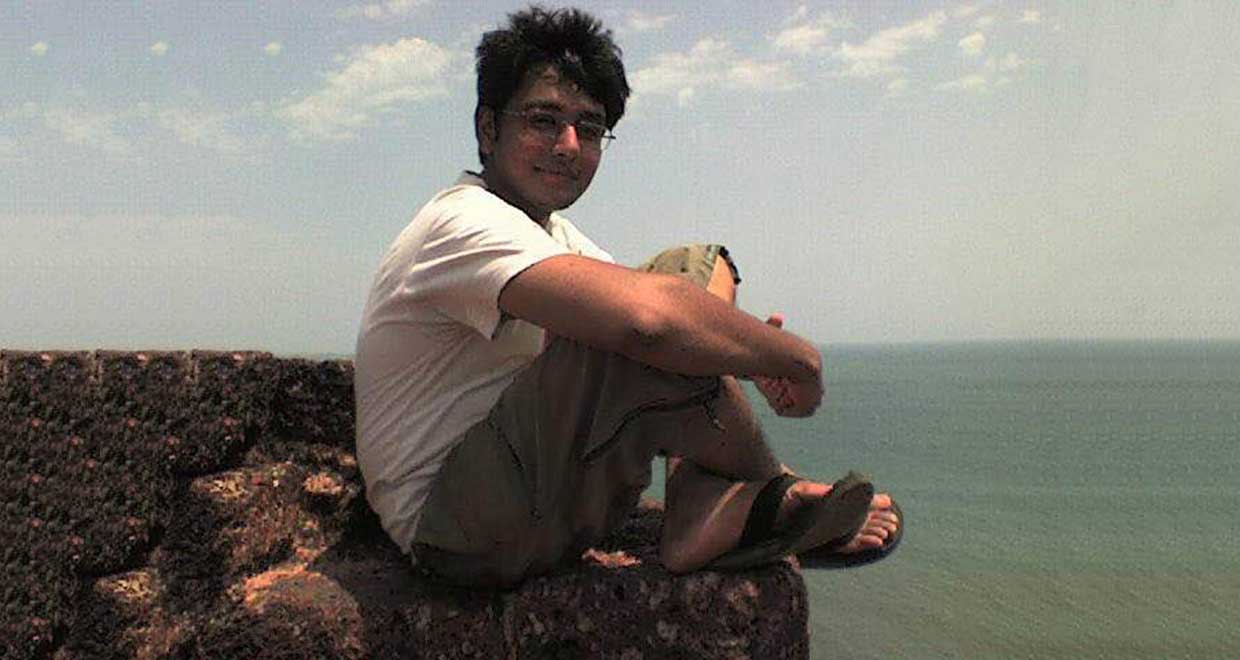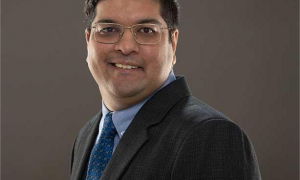Vinay Subramanian graduated from NLU, Jodhpur in 2011. He has been an avid mooter and debator during law school. He has won various moot court competitions including 9th Amity Law College National Moot Court Competition. He has also won the ‘Best Victim’s counsel’ award at the prestigious “International Criminal Court Trials Competition held at Hague, Netherlands”. By the time he graduated, he had received a job offer from Luthra and Luthra Law Offices where he worked for around three years. He is currently working as an Associate at Cyril Amarchand Mangaldas.
In this interview he talks about:
- Law school experience at NLUJ
- winning moot court competitions
- Internships and Work experience at Luthra and Luthra Law Office
- Induction and work at CAM
Before I begin, I would like to present my disclaimer to any and every person who purposefully and accidentally and who by ‘accidental purposefulness’ directs himself to this page:
“By reading this you are officially on notice and you agree from the beginning of time to the end of the world that you will be bound by that notice (whatever that means). The associate herein (whose stellar repute is beyond any contention) hereby makes no guarantees, warranties, or representations, whether express or implied, or specific or general, regarding the accidental humorous or deliberately soporific replies to the questions in this interview. The associate (whose always just doing his job really) does not indemnify the readers from any actions, trauma, claims or injuries (whether physical or mental) caused by the trauma of reading this piece or the reader’s choice to pursue a legal career being influenced by the piece hereby. All legal careers are subject to client moods’risks and the law student must always bill carefully while at work and agree to always have a blast.”
Most of our readers are law students and young lawyers. How will you introduce yourself to them?
Darn! I now feel like I am giving my first firm placement interview all over again. Here it goes – I am Vinay Subramanian. I completed my B.A.LLB. with Honors in Business Law from National Law University, Jodhpur in 2011. I am originally from Mumbai and am presently working in the General Corporate/M&A team at Cyril Amarchand & Mangaldas & Co., Mumbai.
How did you gravitate towards law? Why law and not engineering or medical studies?
There is an interesting background to this. Unlike most other states, where it is your +12 grades that supposedly ‘shape’ up your future, in Maharashtra, the +10 grades are considered equally important since they determine eligibility to a junior college and the relevant streams. Though I had scored decently in my +10 exams and could have easily gotten admission for Science or Commerce stream, I chose to pursue Arts at St. Xavier’s College, Mumbai, unlike hoardes of other students who were making a beeline for the science and commerce streams. Thus, I probably was more inclined to remain ‘offbeat’. After clearing my +12, I was pursuing Economics and Statistics Hons. at St. Xavier’s College, Mumbai. At that time (around 2005-06), the notion was that it is wise to choose a legal career only if one came from a family of lawyers. Most of the national law schools set up at that time were still in its infancy and hardly had a batch or two passing out of it. In fact, at that time, even the theory of having a 5 year law course was unheard of in Mumbai. Luckily, one of my batch mates drew my attention to the existence of national law schools and the tremendous scope a legal career had on offer. When I dug deeper, I realized that a legal profession had tremendous potential and could turn out to be one of the more rewarding and lucrative careers that students would look forward to in the coming years. Hence, adopting an ‘offbeat approach’ once again, I decided to dive into the water and test its depths.
How would you describe your time at NLUJ? What are the co-curricular activities you took part at NLUJ?
“Coming back to Life” is how I would describe my experience at NLUJ in a nutshell. Looking back, I am confident in saying that NLUJ has shaped the individual that I am today. Apart from academics, interacting with students coming from different parts of the country introduced me to new cultures and ways of life. The location of the university also provided me an opportunity to put on my travellers cap and wander across the beautiful landscapes of Rajasthan.
With respect to co-curricular activities, the one thing remarkable about NLUJ is its encouragement for participation in extra-curricular activities.
I was fortunate enough to represent my alma mater in several moot court competitions, both nationally and internationally. It was a proud moment when we were chosen to represent India at ‘The International Criminal Court Trials Competition held at Hague, Netherlands’ and even managed to bag the ‘Best Victim’s counsel’ award. Apart from this, I have won the ‘9th Amity Law College National Moot Court Competition’ at Amity Law School, New Delhi.
I have also been an ardent proponent of, and participated in a number of, parliamentary debates held across the country. I have also been a keen fan of travelling and have participated in a college fests held across various law schools in the country.
Tell us about your internship experiences and how they shaped your career choices later.
I have had the good fortune of working with reputed firms focussing on different areas like constitutional law, civil procedure laws, securities laws, criminal procedure, banking laws, foreign investment laws and contract laws. These include Luthra & Luthra Law Offices (Delhi), Wadia Gandhy & Co (Mumbai), Fox, Mandal & Little (Mumbai), Bhasin & Co. (Delhi) and K. Ashar & Co. (Mumbai) to name a few.
All these internships played a definitive role in determining my career. Particularly, it was in one of these firms that I had the unique opportunity of drafting amendments to a state legislation in Maharashtra, which were present and passed by the state legislature a year later. This motivated me towards taking up drafting documents and identifying issues in different legislations.
What do you have to say about mooting at law school and legal writing for journals? Are these helpful even after the student graduates?
This is a tricky one. It is like asking a doctor whether cutting a frog or cockroach into two during his science class practical is helpful during his career as a neurosurgeon. Moot courts, extempore competitions, parliamentary debates, legal writings and paper presentations must be seen as an aid for the development of the skill of advocacy rather than trying to exactly account for how much of it is applied during one’s legal career. These are mere tricks that prepare you for the real world. I am sure a student who has faced a room full of dissident judges barraging questions left right and centre at him would stand at a better footing while dealing with a high pressure negotiating board room with parties breathing down each other’s necks. Similarly, a student who has a number of publications to his name will be able to draft a legal opinion in a more focussed and cogent manner.
Did you find that your law school education had prepared you sufficiently for the many tasks you were required to execute during your internships and later at your job?
The above question seems to be limited in scope. I want to take a step further to answer how much a law school experience helps anyone in the real life actually. Much like the mantra for the foundations of any stable and happy relationship, a college education can offer only as much as you are willing to accept. Similarly, in a law school as well, it is the student’s choice as to how much he wants to extract from his college experience and apply it in the real world.
We were also fortunate that NLUJ adopted a hand in glove approach while approaching academics and co-curricular activities. For instance, it is probably one of the only law schools in the country which made mooting compulsory for every law student under every law subject and allocated a portion of the grades to it. Thus, this ensured that though students had to focus on academics, it necessarily didn’t mean that they have to sacrifice mooting experiences for academics. Further, this approach also introduced students to mooting from the first year onwards providing students a head start and acclimatised them to a mooting environment.
After graduating from NLUJ, you joined Luthra and Luthra Law Offices. How did you secure your appointment? What kind of responsibilities you were entrusted with there? How would you describe your experience working there?
The experience at Luthra & Luthra Law Offices was very enriching. I secured my appointment through the process of campus placements. I worked in the general corporate/M&A team at the Mumbai office. We were mostly involved in advising healthcare and pharmaceutical companies, private equity and strategic investment funds and media companies. We also acted for private equity funds and foreign companies in making investments in the healthcare and pharmaceutical sectors. In my personal professional capacity, I acted as the lead associate in several of these transactions. My role included assisting in documentation, negotiations, interacting with clients and generally leading the deal under the able guidance of my partner.
As a personal experience, the first three years of your job forms the fulcrum of your entire legal career. In the first or the second year, an associate must be able to decide whether he is cut out for the job or not. However, for this to happen, the firm must constantly be providing a challenging environment to the associate where he is challenged on a daily basis and thereafter arrive at such a decision. I was very fortunate to have an office and a boss who kept pushing me against all odds and forced me to constantly think outside the box.
As part of the general corporate/M&A team, Luthra & Luthra provides an exceptional insight into the field of foreign investment law, which is the buzzword for any general corporate lawyer. Their understanding of foreign exchange law regulations takes into account the pragmatic approach taken by the regulators towards the law.
After having worked at Luthra and Luthra Law Offices for almost three years, how did the shift to AMSS take place? What prompted you to make this choice and what made this shift possible?
Every law firm in India is a different setup by itself with its own peculiarities relating to professional etiquettes like work timings, work exposure, client servicing, documentation review etc. It is important for any corporate attorney to get exposed to these different setups before settling down for a specific setup. I believe that the best time to take this leap is before the lawyer becomes too senior in the hierarchy. This was what predominantly guided me to make this choice. Also, at the time, my partner was himself moving to AMSS and I thought the switch was allowing me to enjoy best of both worlds – work under the guidance of the same partner and with a firm that is one of the best law firms in the country for gaining corporate law experience.
What does your current work profile at AMSS consist of? Tell us about the nature of work you’re entrusted with therein and what’s a typical day like? How has been your experience as an Associate at AMSS so far?
AMSS has been a great experience so far. My current work profile consists of both advisory and transactional work streams. From an advisory perspective, I am involved in providing detailed advice and drafting legal opinions on different aspects of corporate, contractual and foreign investment law. The introduction of new Companies Act has made this field even more interesting since several of these provisions are new and untested. This requires us to delve into the intent of the law (wherever an ambiguity is present) and provide pioneering views on the relevant issues.
From a transaction standpoint, I am involved in running transactions for several private equity players under the guidance of my partner. This requires constant interaction with clients, negotiating with counter parties and driving the transaction to its consummation.
A typical day at AMSS is ‘work, work and work’, which, contrary to what it seems to suggest, is not actually a ‘bad’ thing. The multitude and nature of transactions that keeps pouring into this firm is phenomenal. What makes it more worthwhile is the uniqueness of each transaction and question, which makes us push ourselves and strive for excellence.
Corporate law comes with a humongous workload. What made you gravitate towards this field? How do you manage the workload and your personal life?
Honestly, as any other normal law student, the remuneration was primarily what attracted me towards this field. However, once I entered, I got sucked in due to the variety and diversity of my legal sector. A general corporate law firm profile entails an associate to shoulder different types of responsibilities. Apart from the provisions of company law and contract law, an associate is constantly exposed to different arenas of law on a daily basis. This is very different from a specifically focussed specialization like Competition law or Intellectual Property Laws. This kept the day challenging for me and I continued to row on.
When people talk about how corporate law comes with a humungous workload, I somehow feel that it is not entirely true. A litigation lawyer has an equally strenuous work life (if not more) as compared to corporate lawyers. I have a number of my peers who are working in different spheres of litigation and I see them slogging equally (if not more) than us. A humungous workload is the benchmark for any lawyer and not alone corporate lawyers.
The best way to manage workload and personal life is to take advantage of your ‘leaves’ from time to time at regular intervals. As I am an ardent traveller, I like to pack my bags off spontaneously and see what the roads have on offer for me. Even getting away on weekends to nearby places helps you de-stress and reinvigorate one self.
According to you what are the qualities that make a good lawyer?
I don’t think I am qualified enough to list down these. But from looking at my partner and seniors in action, its determination, focus and genuine fondness for the job that maketh the man in any profession. The thumb rule is – every morning when you wake up, ask yourself whether
(a) you are determined to reach the office that day;
(b) you are genuinely enjoying what you are doing; and
(c) you are being constantly challenged (because honestly ‘staying in your comfort zone’ is just another way for saying that one is ‘stuck in a rut’).
If the answer is ‘yes’ you will automatically excel at whatever you do and become a good lawyer.
What are the primary professional ethics you follow while at work? What has been your strategy to deal with errors and mistakes?
I think my answer to the above mentioned question answers the first part. Now for the second part – All I can say is that “To err is human but… to have a client who has forgiven you must be a client who must be cherished and treasured for life and one must ensure that he never leaves your side!” But on a serious note, like any other job, an associate is bound to make mistakes since he is new to the field. Learning from your mistakes is what is more important than crying over the ‘spilt milk’. The best strategy is to remain focussed and keep questioning yourself at every stage of the transaction or advice. The moment you start asking too many questions about a particular point you realize that you do not have enough information on the relevant issue and you need to start reading up. Once you have read enough and understood the nuances, you will realize you are much more confident and this in turn will result in lesser mistakes. Also, this is where the role of an able and approachable senior comes into play. Having a helpful senior provides an associate with a self of reassurance.
Many law students strongly believes that getting a job at one of the top 3 law firms is mostly about securing a high CGPA. Would you agree?
In my experience, a high CGPA does come in handy at time of procuring a pre-placement offer or getting a foreign firm internship. But I think the buck stops there. Lately, we are seeing a number of top tier firms slowly changing their strategy to pick an “all-rounder lawyer” rather than a one who has only chased the kites of grades during his law school life. Interestingly, on a lighter note, this could also explain why we see most of the top tier firms doing exceptionally well in law firm cricket and football tournaments as well nowadays.
These days there are many law students rushing forth to intern at law firms from their first year itself throughout till their fifth year. What do you have to say about the advisability of law students pursuing such a course of action?
Choosing your internships wisely during your legal education can be very advantageous when one finally makes a career decision on specializing in one specific area of law. As a law student, we have a very different notion of the specialization areas. An internship actually helps a student break the myths and notions and helps him bridge his expectations with the reality of work life. I believe that at least for the first 3 years, a law student must try to do an internship in every possible area of law that he has added to his wish list for specialization. Also, it would be best during this time, to not join the bigger firms but start with the smaller firms, where there is more scope of interaction with the seniors. By the end of the 3rd year, it is important for the student to zero in on the specific legal area that he intends to specialize in. It is the 4th and 5th year, where a student must focus on choosing internships with firms that specialize in the area that he wants to work in. I used the above as a thumb rule to choose my internships.
AMSS takes on interns as well. What do you feel makes an intern stand out and is very important for him to do to have a chance of getting a call back or even a PPO?
Unlike what law students think, an intern for associates at top tier firms are as important as what an internship at a top tier firm means to an intern. With the “acche din” juggernaut rolling presently, the associates have their hands more than full. An intern who has a basic idea of the law, is focussed and determined eases the pressure of the associate since he is able to focus on other things while the intern is sharing his/her workload.
What associates look out for in interns is ‘sincerity’ and ability to grasp propositions well. Thus, if an intern is not able to understand a particular nuance (which by the way is very normal since the intern does not have the type of exposure associates have had), it is worthwhile for the intern to discuss and get clarifications from the associate as early as possible. Once an associate sees that the intern is working and meeting expectations, it is but natural for him to recommend him/her to the relevant partner and assist in the call back/PPO process. Once the partner realizes that his associates have entrusted their faith in an intern, he will be more than willing to bring him/her into the fold since this for him results in progression and growth for the entire team.
What skills would you say is a sine qua non for an intern who wants to excel at work?
An intern must focus on her ‘research’ skills. It is rare that an intern would ever get to draft a legal document while interning. It is the research skills and ability to point out issues in a particular proposition of law that would make an intern stand out and excel at his/her work.
What would be the one misconception you’d say you’d always held about real life legal work till the time you were an intern but changed once you started working as a lawyer?
I guess I had watched too much of ‘Boston Legal’ and ‘The Practice’ during my college life to have any notion other than that of waltzing into a law firm as ‘Denny Crane’ or ‘Alan Shore’. As an intern, luckily some of these myths faded away and a blurred image of the reality was shown to me. But when I started working, I realized that as an associate, one has to shoulder much more responsibility and accountability that never existed much as an intern. Additionally, with every passing year, you are responsible for not only training and keeping a check on yourself but also on your juniors who rely on you for your guidance in every area of work.
The question that whether one should specialise in a particular area of law or be more of a general lawyer often comes up before law students. What is your opinion on the same?
It basically boils down to the nature and preference of a particular individual. It is not like the specialized areas are mundane and one would end up doing only the same stuff day in and day out. However, the basic legislation for the work would be the same. General corporate law helps an associate to try his hand at different areas of law. A general corporate lawyer also helps tie in the specialized areas of law and knit them into a complete package which is then presented to the client. For instance, in any private equity transaction, inputs from the Competition law team and IPR team are taken and provided to clients to provide them with specific inputs of these areas on the relevant transaction.
Where do you see yourself five years from now?
I like to take one day at a time since in the words of Keats, “In the long run, we are already dead”. I see myself continuing to do something challenging, and determined and striving to excel at whatever I am doing.
Lastly, what would be your message to all the law students reading this?
In the word of Baz Luhrmann, “Sometimes you are ahead, sometimes you are behind, the race is long and in the end it is only with yourself…”. So keep calm and dream along.


























